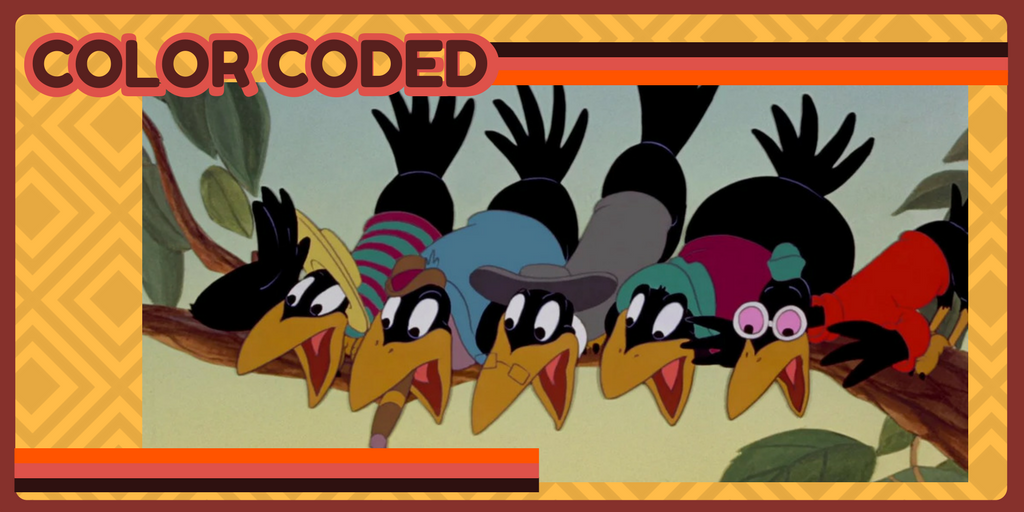This one goes without saying, doesn’t it? As much as I love Dumbo (and as much as I’m always teary when Dumbo has to say goodbye to his mom), I can’t overlook these doggone crows. They’re black minstrel characters.
Complex’s Hope Schreiber broke it down just right, illuminating just how offensive these characters are.
“Jive-talking black crows, smoking while singing, ‘I’d be done see’n about everything, when I see an elephant fly’ is already super offensive. Except it gets worse. The main crow’s name is Jim Crow, hilariously named after the racial segregation laws. Additionally, the actors are all white men putting on their best black man voice. Yes, the beloved story of an elephant who learns to fly is just a dressed-up minstrel show. The defense Disney super-fans give the characters is that they were the only ones who helped Dumbo. But just because they’re nice doesn’t mean it’s not racist.”
St. Olaf College student Christopher Alexander went even further in his online essay about the crows, detailing how the tie between minstrelsy, the character Jim Crow (who later became the name of the infamous Jim Crow laws that dominated the south until the 1960s) and the poses, mannerisms and characterizations of the crows.
“Although the exact origins of Rice’s inspiration for the Jim Crow character are unknown, it quickly became a sensational performance phenomenon. In his book Jump Jim Crow, W. T. Lhamon Jr explores the history and characteristics of the Jim Crow craze. He states that “No other American cultural figure stirred a legacy that endures such widespread censure as well as continual appropriation.” Such a widespread cultural figure can’t be referred to without indicating the negative racial stereotypes associated with it. A visual comparison between the two characters confirms the similarities between T. D. Rice’s representation of Jim Crow in minstrelsy and the animation of Dumbo’s crows. Even the poses, dance, and body language of Dumbo is a direct tribute to the original minstrel tradition.”
At least one of the crows is also voiced by a white man, Cliff Edwards, while the others are voiced by the Hall Johnson choir, a black group founded by black choral director, arranger and composer Hall Johnson. The fact that black voices were employed for these characters doesn’t negate the fact that they are horrible stereotypes. The tragic part isn’t that black people where paid to voice terrible characters; the tragedy is that these roles are indicative of the only types of roles available to black entertainers in the first place.
Edwards’ role can’t be overlooked either; the fact that he has the ability to project a stereotype of blackness into a character speaks to how the mainstream idea of “blackness” is just an invented set of stereotypes and lies put in place as tools to keep a certain sect subjugated. Take the crows’ speech for example–Edwards is making fun of a specific southern black dialect, perpetuating the idea that black people aren’t smart and should just be seen as goofs. But this flattens the truth behind the dialect; the dialect exists because Africans were learning English without any formal help. They developed their own dialect–in some cases, their own languages–to replace the languages and dialects they were in danger of losing. In other words, these so-called “dumb” slaves learned an entirely new language while being beaten, overworked, and assaulted. But even that small triumph of learning a new form of communication is used as fodder for belittling and abusing them.
After all of this, some might be wondering if they should still like Dumbo. Sure, you can still like it. Heck, I still like it. But it always pays to know the types of messages embedded in our favorite works of entertainment so we can figure out how we choose to allow those messages to play out in our lives.
Loved this article? Follow JUST ADD COLOR at @COLORwebmag and on Facebook! If you want to support more writing like this, donate to my Ko-fi account!
